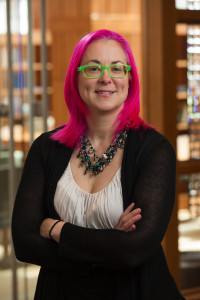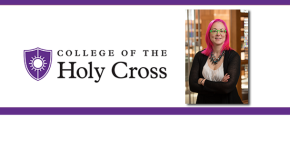 Can sentiments about a disease be worse than the actual condition?
Can sentiments about a disease be worse than the actual condition?
Renée Beard, associate professor of sociology and anthropology at the College of the Holy Cross, discusses the stigma associated with Alzheimer’s disease.
Renée L. Beard, Ph.D., received her degree in medical sociology from the Department of Social and Behavioral Sciences at the University of California, San Francisco. Her disseration, Managing Memory: clinical facts, biomedical negotiations, and Alzheimer’s identities, was a sociocultural and historical analysis of treating, serving, and experiencing memory loss in clinical practice, advocacy arenas, and everyday life. She completed a NIH Postdoctoral Fellowship in Gerontological Public Health at the Institute for Health Research and Policy, Univeristy of Illinois at Chicago. Her substantive areas are medical sociology and aging, including the senior rights movement, the bioethics of aging, lay and expert knowledges, doctor-patient interactions, and subjective experiences of illness and aging. Her senior seminar, Illness Narratives, examines the psychosocial impact of various ailments through first-person accounts. She also teaches medical sociology, families & societies, aging & society, and research methods.
Stigma of Alzheimer’s

Alzheimer’s disease was first diagnosed in a 52 year old German housewife named Frau D.
For the next three-quarters of a century, the condition remained exceedingly rare.
When the National Institute of Aging and US Alzheimer’s Association were established in the 1980s, they redefined the term to include people who were over 65 years of age with so-called senility, making Alzheimer’s the 4-5th leading cause of death virtually overnight.
Yet, more than a century later, the cause and how to classify or treat the condition all remain elusive. A definitive diagnosis remains possible only upon autopsy – and false positives and negatives abound.
Today, Alzheimer’s is seemingly ubiquitous. Unfortunately, it reveals itself far less through the life stories of real people with the condition than the tales of tragedy portrayed by the mass media and modern medicine.
For the nearly 200 affected people I’ve spoken with over the past decade, the symptoms of memory loss appear almost universally scary and distressing. Yet they demonstrate remarkable resilience and most days actively manage said symptoms – sometimes with help from others.
What they have more difficulty overcoming are the unrelenting social and psychological consequences of the medical label. Feeling like they are now second-class citizens leads diagnosed individuals to emphasize that they are still the same person they have always been; it’s just that now they have memory difficulties. The social costs of diagnosis, then, require management on top of the biological realities of memory loss itself.
American cultural willingness to persecute our most deeply forgetful members reflects and reinforces deep-seated ageism and fear of death. If old age was seen as a privilege and we promoted inclusion over dread, we might well end up better equipped to imagine ourselves as future old people – forgetful or not.
There should be a distinction between Alzheimer’s disease and simple late-life memory loss. As my research suggests, sometimes the diagnosis of Alzheimer’s is worse than the affliction itself.
